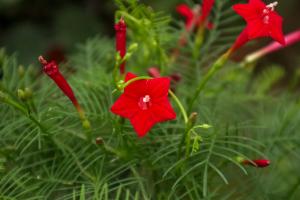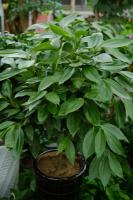Is Distilled Water or Tap Water Better for Plants?
When it comes to watering your plants, you may be wondering whether distilled water or tap water is the better choice. There are pros and cons to both options, and ultimately the decision depends on various factors specific to your plants and your location. Here, we’ll explore the potential benefits and drawbacks of using distilled water versus tap water to help you make an informed choice.
The Benefits of Using Distilled Water for Plants
One of the biggest advantages of using distilled water for plants is that it is essentially pure water. Distilled water is created by heating regular water to create steam, which is then condensed back into liquid form in a separate container. This process removes impurities like minerals, chemicals, and bacteria, leaving behind pure H2O. Because it lacks these impurities, distilled water can be a great choice for plants that are sensitive to chemicals or that require a specific pH balance.
Another benefit of using distilled water is that it can help prevent the buildup of minerals in your soil. Tap water often contains various minerals that can accumulate in your plant’s soil over time. This mineral buildup can lead to a condition known as soil salinity, which can negatively impact your plant’s growth and health. By using distilled water, you can help prevent this problem from occurring.
The Drawbacks of Using Distilled Water for Plants
While distilled water has many potential benefits, there are also some drawbacks to consider. One major drawback is that it lacks many of the minerals that are naturally present in tap water. These minerals, like calcium and magnesium, can be important for the growth and health of your plants. If your plants rely on these minerals and you only use distilled water, you may need to provide additional supplements to ensure they receive all the nutrients they need.
Distilled water also tends to be more expensive than tap water. If you have a large garden or many indoor plants, the cost of using distilled water for all of them could quickly add up. Additionally, the process of distilling water can be energy-intensive, so if you are concerned about your carbon footprint, using distilled water may not be the most environmentally friendly option.
The Benefits of Using Tap Water for Plants
Tap water is often readily available and can be a convenient option for watering your plants. One of the biggest benefits of using tap water is that it often contains minerals that your plants need to grow and thrive. In addition to calcium and magnesium, tap water may also contain other beneficial trace elements like iron and zinc. If your plants require these minerals, using tap water may be the best choice.
Another benefit of using tap water is that it is typically less expensive than distilled water. Depending on your location, tap water may even be free in some cases. If you have a large garden or many plants to water, using tap water may be the more cost-effective option.
The Drawbacks of Using Tap Water for Plants
One drawback of tap water is that it often contains chlorine and fluoride. While these chemicals are added to tap water to make it safe for human consumption, they can be harmful to plants. Chlorine can kill beneficial bacteria in the soil, and fluoride can accumulate in plant tissues over time. If you use tap water to water your plants, it is a good idea to let it sit out overnight before using it. This can help the chlorine and fluoride evaporate, reducing their potential harm to your plants.
In addition to potential chemical contaminants, tap water can also contain heavy metals or other pollutants. If you live in an area with particularly contaminated tap water, it may be a better choice to use distilled water instead.
Final Thoughts
So, is distilled water or tap water better for plants? Ultimately, the answer depends on your specific plants and your location. If your plants require specific minerals or are sensitive to chemicals, distilled water may be the better choice. However, if you have healthy plants and clean tap water, using tap water may be a more convenient and cost-effective option. Ultimately, the key is to observe your plants and pay attention to their health and growth, adjusting your watering routine as needed to ensure they receive the nutrients and water they need to thrive.

 how many times do yo...
how many times do yo... how many planted tre...
how many planted tre... how many pine trees ...
how many pine trees ... how many pecan trees...
how many pecan trees... how many plants comp...
how many plants comp... how many plants can ...
how many plants can ... how many plants and ...
how many plants and ... how many pepper plan...
how many pepper plan...































